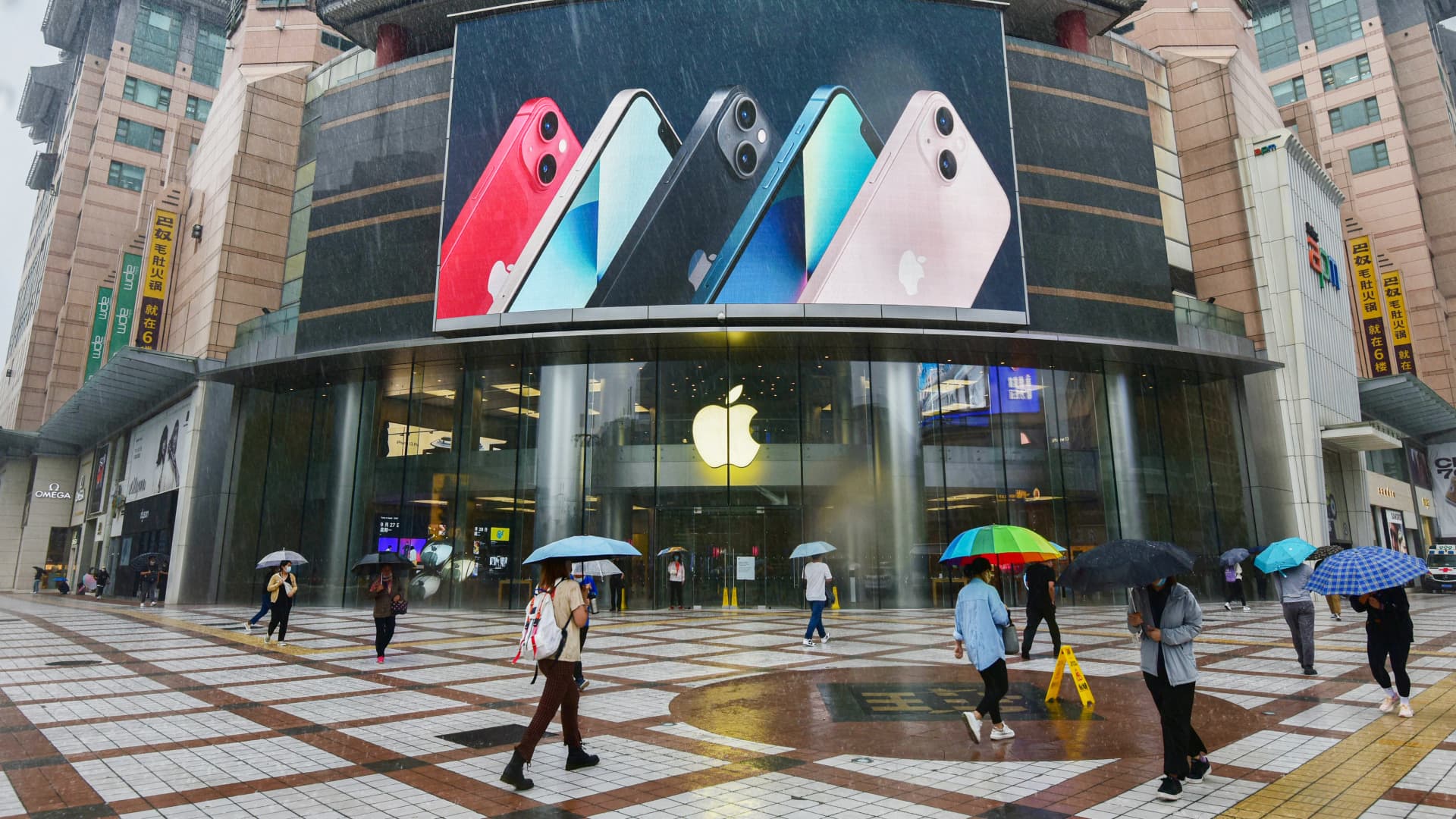People walk past an apple store in Wangfujing with iPhone 13 series advertisement on a big screen.
Sheldon Cooper | LightRocket | Getty Images
This report is from today’s CNBC Daily Open, our new, international markets newsletter. CNBC Daily Open brings investors up to speed on everything they need to know, no matter where they are. Like what you see? You can subscribe here.
What you need to know today
The bottom line
We had higher oil prices on Tuesday. The next day, we learned input prices were rising. Today, there’s another sign the U.S. economy refuses to keel over. In the “good news is bad news” frame of mind that markets are in, that means it was the stock market that capitulated.
Initial jobless claims fell last week to a seasonally adjusted 216,000, according to a report by the U.S. Labor Department. That figure’s lower than the 230,000 estimate and 13,000 less than the previous period. Separately, unit labor costs, a measure of hourly compensation minus productivity, rose 2.2% in the second quarter, higher than the 1.9% estimate.
In other words, the labor market still looks tight because employers are laying off fewer people and paying them more. In turn, traders increased their bet that the Federal Reserve will hike interest rates at their November meeting. There’s now a 47.5% chance rates will go up 25 basis points then, according to the CME FedWatch tool. It was 37.1% just a week ago.
Technology stocks were hit by a double whammy of Thursday’s economic data, and a report that China’s allegedly banning government workers from using iPhones at work — and is looking to broaden that ban to other state companies and government-backed agencies.
Apple fell 2.92%, following its 4% decline the previous session. That’s a drop of about $200 billion in two days. Stocks like Nvidia, Advanced Micro Devices and Seagate slipped as well.
Those moves weighed on the tech-heavy Nasdaq Composite, which retreated 0.89% for its fourth day of decline. The S&P 500 shed 0.32%. But the Dow Jones Industrial Average managed to edge up 0.17%, boosted by Intel’s 3.24% surge and UnitedHealth’s 1.65% gain.
“August was a difficult month, with weak data, and September may be the same,” said Brad McMillan, chief investment officer at Commonwealth Financial Network.
And even though markets may be in a “good news is bad news” frame of mind for now, McMillan reminds us that positive economic data is, fundamentally, something to cheer about. “Beyond that, though, the prospects remain good. Any recession is likely some time away, which should keep markets healthy.”
— CNBC’s Jeff Cox contributed to this report

